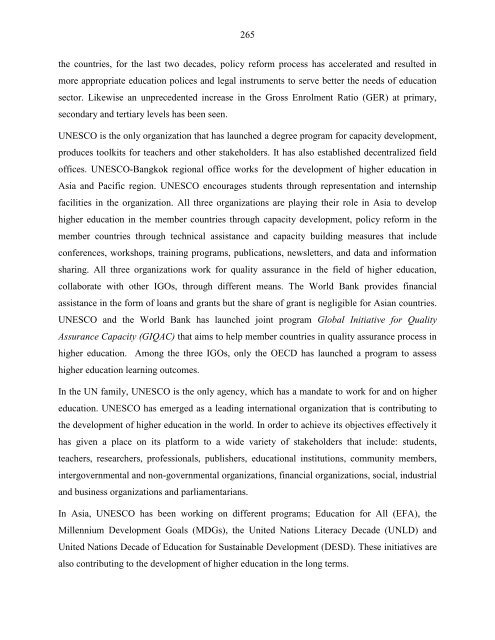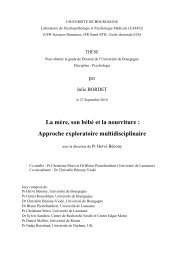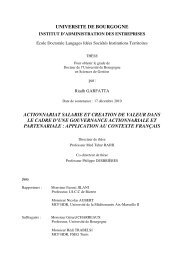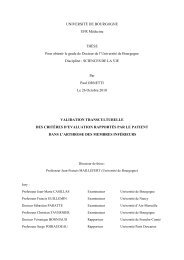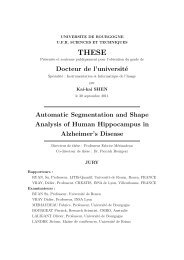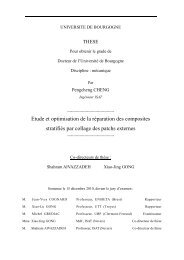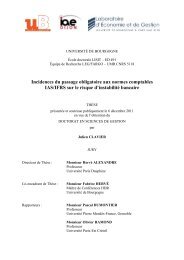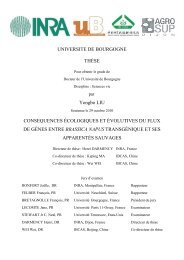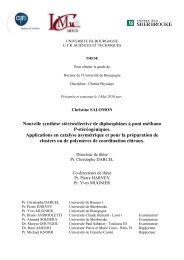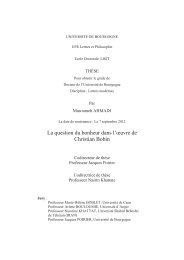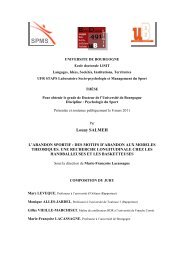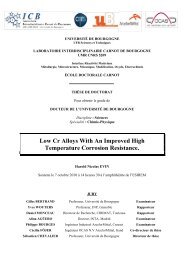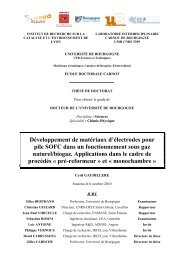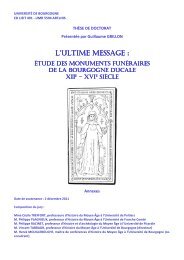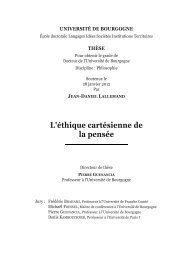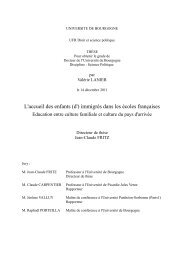Higher education in Asian countries and the role of international ...
Higher education in Asian countries and the role of international ...
Higher education in Asian countries and the role of international ...
Create successful ePaper yourself
Turn your PDF publications into a flip-book with our unique Google optimized e-Paper software.
265<br />
<strong>the</strong> <strong>countries</strong>, for <strong>the</strong> last two decades, policy reform process has accelerated <strong>and</strong> resulted <strong>in</strong><br />
more appropriate <strong>education</strong> polices <strong>and</strong> legal <strong>in</strong>struments to serve better <strong>the</strong> needs <strong>of</strong> <strong>education</strong><br />
sector. Likewise an unprecedented <strong>in</strong>crease <strong>in</strong> <strong>the</strong> Gross Enrolment Ratio (GER) at primary,<br />
secondary <strong>and</strong> tertiary levels has been seen.<br />
UNESCO is <strong>the</strong> only organization that has launched a degree program for capacity development,<br />
produces toolkits for teachers <strong>and</strong> o<strong>the</strong>r stakeholders. It has also established decentralized field<br />
<strong>of</strong>fices. UNESCO-Bangkok regional <strong>of</strong>fice works for <strong>the</strong> development <strong>of</strong> higher <strong>education</strong> <strong>in</strong><br />
Asia <strong>and</strong> Pacific region. UNESCO encourages students through representation <strong>and</strong> <strong>in</strong>ternship<br />
facilities <strong>in</strong> <strong>the</strong> organization. All three organizations are play<strong>in</strong>g <strong>the</strong>ir <strong>role</strong> <strong>in</strong> Asia to develop<br />
higher <strong>education</strong> <strong>in</strong> <strong>the</strong> member <strong>countries</strong> through capacity development, policy reform <strong>in</strong> <strong>the</strong><br />
member <strong>countries</strong> through technical assistance <strong>and</strong> capacity build<strong>in</strong>g measures that <strong>in</strong>clude<br />
conferences, workshops, tra<strong>in</strong><strong>in</strong>g programs, publications, newsletters, <strong>and</strong> data <strong>and</strong> <strong>in</strong>formation<br />
shar<strong>in</strong>g. All three organizations work for quality assurance <strong>in</strong> <strong>the</strong> field <strong>of</strong> higher <strong>education</strong>,<br />
collaborate with o<strong>the</strong>r IGOs, through different means. The World Bank provides f<strong>in</strong>ancial<br />
assistance <strong>in</strong> <strong>the</strong> form <strong>of</strong> loans <strong>and</strong> grants but <strong>the</strong> share <strong>of</strong> grant is negligible for <strong>Asian</strong> <strong>countries</strong>.<br />
UNESCO <strong>and</strong> <strong>the</strong> World Bank has launched jo<strong>in</strong>t program Global Initiative for Quality<br />
Assurance Capacity (GIQAC) that aims to help member <strong>countries</strong> <strong>in</strong> quality assurance process <strong>in</strong><br />
higher <strong>education</strong>. Among <strong>the</strong> three IGOs, only <strong>the</strong> OECD has launched a program to assess<br />
higher <strong>education</strong> learn<strong>in</strong>g outcomes.<br />
In <strong>the</strong> UN family, UNESCO is <strong>the</strong> only agency, which has a m<strong>and</strong>ate to work for <strong>and</strong> on higher<br />
<strong>education</strong>. UNESCO has emerged as a lead<strong>in</strong>g <strong>in</strong>ternational organization that is contribut<strong>in</strong>g to<br />
<strong>the</strong> development <strong>of</strong> higher <strong>education</strong> <strong>in</strong> <strong>the</strong> world. In order to achieve its objectives effectively it<br />
has given a place on its platform to a wide variety <strong>of</strong> stakeholders that <strong>in</strong>clude: students,<br />
teachers, researchers, pr<strong>of</strong>essionals, publishers, <strong>education</strong>al <strong>in</strong>stitutions, community members,<br />
<strong>in</strong>tergovernmental <strong>and</strong> non-governmental organizations, f<strong>in</strong>ancial organizations, social, <strong>in</strong>dustrial<br />
<strong>and</strong> bus<strong>in</strong>ess organizations <strong>and</strong> parliamentarians.<br />
In Asia, UNESCO has been work<strong>in</strong>g on different programs; Education for All (EFA), <strong>the</strong><br />
Millennium Development Goals (MDGs), <strong>the</strong> United Nations Literacy Decade (UNLD) <strong>and</strong><br />
United Nations Decade <strong>of</strong> Education for Susta<strong>in</strong>able Development (DESD). These <strong>in</strong>itiatives are<br />
also contribut<strong>in</strong>g to <strong>the</strong> development <strong>of</strong> higher <strong>education</strong> <strong>in</strong> <strong>the</strong> long terms.


